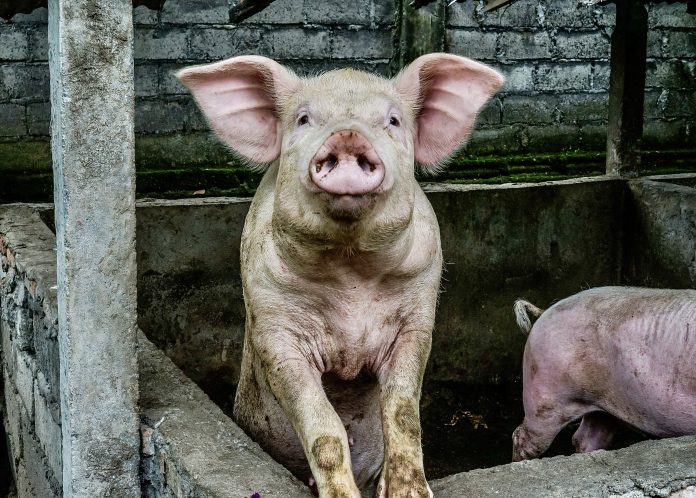
First-Of-Its-Kind Research Reveals The Staggering Impact Factory Farming In Canada Has On Our Climate
By Lauren Lewis
You can help all animals and our planet by choosing compassion on your plate and in your glass. #GoVeg
RELATED ARTICLES
Banning Cruelty: New Legislation Aims To Ban Octopus Farming In The U.S.
New bipartisan legislation has just been introduced in the U.S. to ban commercial octopus farming and prohibit imports of farmed octopus from foreign countries.
The...
Outrage In Yellowstone! Grizzly Bear Killed By Wildlife Officials & Left With Head & Paws Cut Off
Photo by: Trisha McFarland / Cowboy State Daily
A photo of a dead grizzly bear with its head and paws cut off has caused an...
Inside Florida’s Illegal Horse Meat Trade: Undercover Footage Shows Racehorse Being Shot & Butchered
A heart-wrenching discovery of illegal horse slaughter has emerged, with video footage exposing the tragic killing of a racehorse named 'Funny Biz,' who was...
Popular stories
News
Indiana’s Ban On Public Contact With Big Cats & Bears Went Into Effect This Month; Help Pass The Federal ‘Big Cat Public Safety Act’
Indiana’s new law prohibiting direct public contact with big cats and bears went into effect on July 1st. Implementation of the new law brings much...
News
The “Blackfish” Legacy; Hopeful News As Captive Marine Mammal Industry Continues To Decline
A decade after the award-winning documentary “Blackfish” examined the ethics and consequences of keeping orcas in captivity, marine theme parks and aquariums that feature...
News
Colorado Passes Bill To Protect People & Pets During Natural Disasters; Bill Now Waits For The Governor’s Signature
The ASPCA commends Colorado lawmakers for passing H.B. 24-1033 to help ensure that state agencies include pets in all levels of disaster response planning and create...


